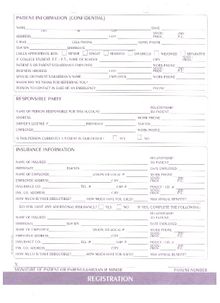Denture/Partial Homecare Instructions
Getting dentures is a big adjustment. Some initial discomfort, difficulty chewing, speaking, and eating is normal.
Sore Spots:
It is normal to need a few adjustments with new dentures or partials. If a sore spot arises continue normal denture wear, but contact our office. An appointment will be made for you as soon as possible—often the same day. Being able to see the sore spot aids us in our adjustment.
Salivation:
Excess salivation is normal during the first few days of denture wear. Your body sees the denture as a foreign body and produces saliva in response. This will resolve in a few days.
Eating:
Start with a soft diet. Once harder foods are introduced try to chew evenly on the left and right sides of your mouth. Use vertical chewing motions as opposed to side-to-side motions.
Cleaning and Storage:
Brush dentures with a soft toothbrush or denture brush twice daily. Do not use toothpaste as this can be abrasive to dentures. You may use regular soap or just water. When brushing dentures do so over a sink full of water or place a towel in the bottom of the sink. If a denture is dropped it is likely to break. Even if you have no teeth it is still important to brush your gums twice daily with a soft toothbrush. Dentures should be removed at night and stored in water to keep them from warping. Those who do not remove their denture at night may have accelerated bone loss and a higher risk of fungal infection.
 PDF
PDF
 PDF
PDF
 PDF
PDF
 PDF
PDF
 PDF
PDF